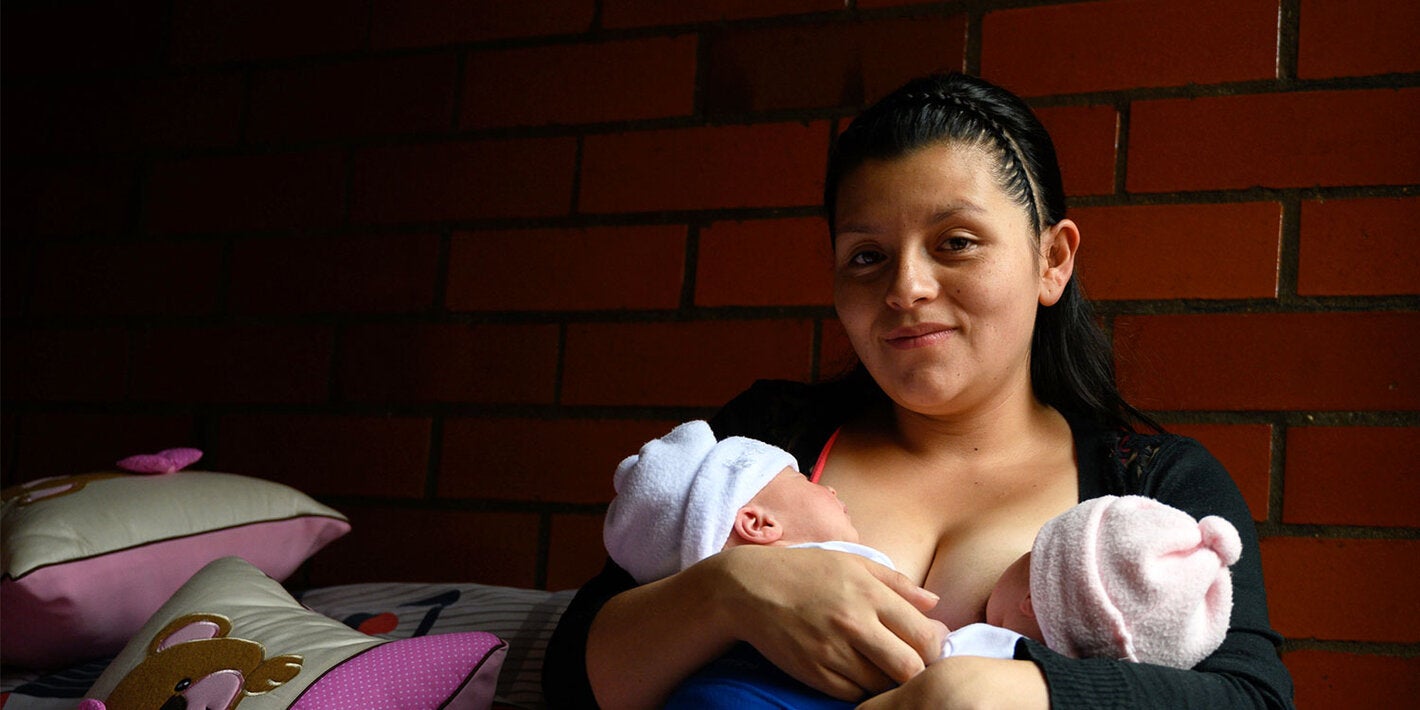
Experts from the Region discuss how to improve the quality of care in the delivery of health services.
Washington, DC, September 22, 2021 (PAHO) - As part of the webinar series on the Essential Public Health Functions (EPHF), organized by the Pan American Health Organization (PAHO), and to celebrate this year's World Patient Safety Day, a new meeting was held that focused on identifying the challenges and opportunities to improve the quality of health service delivery with a focus on safe maternal and neonatal care, to integrate the multiple perspectives involved in this issue. The event was structured in three thematic panels that allowed the inclusion of health service workers and users, workers and users of health services, those of quality experts and schools of Public Health, and the perspective of health services management.
Ernesto Báscolo, Advisor on Health Governance, Leadership, Policies and Planning of PAHO/WHO, presented the new proposal of the essential public health functions and its articulation with quality perspective. "One of the PAHO Quality Agenda Strategies is to strengthen stewardship and governance, which is the purpose of the EPHF agenda, fundamentally interpreting the EPHFs as the institutional capacities of authorities and civil society, which are necessary to strengthen and influence all those factors and determinants of health to improve the health conditions of the population," said Báscolo.
Bremen De Mucio, PAHO/WHO Regional Advisor on maternal health of the Latin American Center for Perinatology/Women and Reproductive Health (CLAP), addressed the specific challenges in the safety and quality of maternal and neonatal care in the Region of the Americas. "The greatest challenge we face is the lack of a culture of patient safety and quality improvement in obstetric services, where we still have a long way to go," said De Mucio.
In the first panel, Helen Haskell, Patient Safety Leader for the World Health Organization, expressed the need to integrate public health efforts and include the patients' views in health services. Lillian Lewis-McDonald, Infection Prevention Nurse at Victoria Jubilee Hospital, Kingston, Jamaica, added the perspective of health workers, explaining the relevance and need for recognition and support from all actors in the system to continue providing quality patient care.
The second panel, representing quality experts, included Pedro Delgado, Vice-President of the Institute for Healthcare Improvement, and Hugo Guajardo, President of the Board of Directors of the Foundation for Patient Safety of Chile. Ana María Malik, professor at the Sao Paulo School of Business Administration, the Getulio Vargas Foundation, and an elected member of the Brazilian Academy of Quality, spoke on behalf of the schools of public health. Each of the speakers introduced their perspective on different notions of quality, and all agreed that a new approach is needed to overcome the persistent barriers to guarantee the provision of comprehensive health services.
Finally, as part of the third panel, Arnaldo Medina, Secretary of Quality of the Ministry of Health of Argentina, presented the bases and the four strategic lines of the National Quality Plan 2021-2024, recently launched by the Ministry of Health of Argentina. To conclude the event, Hernán Rodríguez González, Advisor on Health Systems and Services PAHO/WHO in Peru, commented on the technical cooperation experience developed in Ucayali, Peru, focused on improving maternal health from the first level of care.
Jonás Gonseth García, Advisor on Quality in Health Systems and Services of PAHO/WHO, emphasized the importance of this perspective of the EPHF, which highlights the new quality paradigm and the renewed attention to patient safety, focusing on the need to integrate efforts to overcome the traditional fragmentation and lack of coordination of health interventions in the region of the Americas.
The webinar series, organized by the Health Services and Access Unit of the Department of Health Systems and Services (HSS/HS), will be offered during the rest of the year monthly with different themes, actors, and experiences of countries to strengthen the essential public health functions.
Find more information here.



